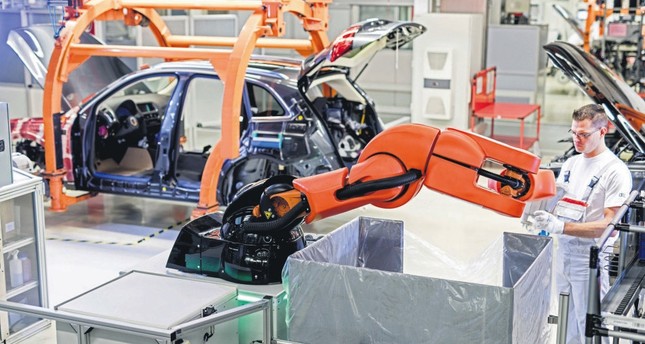In less than five years, people and machines will work side by side with data analysis-based artificial intelligence technologies. Artificial intelligence, an area of computer science that emphasizes the creation of intelligent machines, is progressing rapidly. Do we need to ensure that it will remain safe and beneficial?
copyright by www.dailysabah.com
 Artificial intelligence is a topic that interests us all today. We are experiencing the advantages of this technology “unwittingly” in different business areas, especially in the cellphones we use, along with mobile applications at the center of digital transformation, and the insurance and banking sectors. The idea that whether an “artificial intelligence dystopia” will turn into reality is a nagging question of our times.
Artificial intelligence is a topic that interests us all today. We are experiencing the advantages of this technology “unwittingly” in different business areas, especially in the cellphones we use, along with mobile applications at the center of digital transformation, and the insurance and banking sectors. The idea that whether an “artificial intelligence dystopia” will turn into reality is a nagging question of our times.
The answers to the questions “Are we really afraid of artificial intelligence?” and “How intimate are the institutions in Turkey with this technology and where are they in the developments taking place in the world?” are pondered upon by both individuals and institutions in terms of steering the future. IBM, which has an important place in the development history of artificial intelligence since the 1990s with Watson and provides corporate services for “artificial intelligence – internet of things (IoT)” solutions, is the international address that can answer these questions in the most accurate way.
Nicholas Anderson is IBM Turkey’s country strategist, meaning that he sheds light on how IBM’s global business strategy policies can be integrated into institutions in Turkey. British Anderson has been in Turkey for 10 years. Thanks to his Turkish wife and his wonderful integration with the Turkish culture, he has become a proper bridge between Turkey and IBM. Anderson, who can objectively interpret the connection between Turkish culture and technology and the way it has gone through in digital transformation, has some observations that can capture your interest.
“The Turkish people love to use technology, but in the fashion of an abacus. They are looking for tangible and concrete data before investing in technology,” Anderson said. “Turkey has a banking system that is very rare in the world. If you want a credit card here or if you want to carry out any banking transactions, all the convenience is provided online/offline, and all the processing takes place in a short time.” Anderson thinks this makes a positive contribution to the digitalization process in Turkey. […]
read more – copyright by www.dailysabah.com


In less than five years, people and machines will work side by side with data analysis-based artificial intelligence technologies. Artificial intelligence, an area of computer science that emphasizes the creation of intelligent machines, is progressing rapidly. Do we need to ensure that it will remain safe and beneficial?
copyright by www.dailysabah.com
The answers to the questions “Are we really afraid of artificial intelligence?” and “How intimate are the institutions in Turkey with this technology and where are they in the developments taking place in the world?” are pondered upon by both individuals and institutions in terms of steering the future. IBM, which has an important place in the development history of artificial intelligence since the 1990s with Watson and provides corporate services for “artificial intelligence – internet of things (IoT)” solutions, is the international address that can answer these questions in the most accurate way.
Nicholas Anderson is IBM Turkey’s country strategist, meaning that he sheds light on how IBM’s global business strategy policies can be integrated into institutions in Turkey. British Anderson has been in Turkey for 10 years. Thanks to his Turkish wife and his wonderful integration with the Turkish culture, he has become a proper bridge between Turkey and IBM. Anderson, who can objectively interpret the connection between Turkish culture and technology and the way it has gone through in digital transformation, has some observations that can capture your interest.
“The Turkish people love to use technology, but in the fashion of an abacus. They are looking for tangible and concrete data before investing in technology,” Anderson said. “Turkey has a banking system that is very rare in the world. If you want a credit card here or if you want to carry out any banking transactions, all the convenience is provided online/offline, and all the processing takes place in a short time.” Anderson thinks this makes a positive contribution to the digitalization process in Turkey. […]
read more – copyright by www.dailysabah.com
Share this: